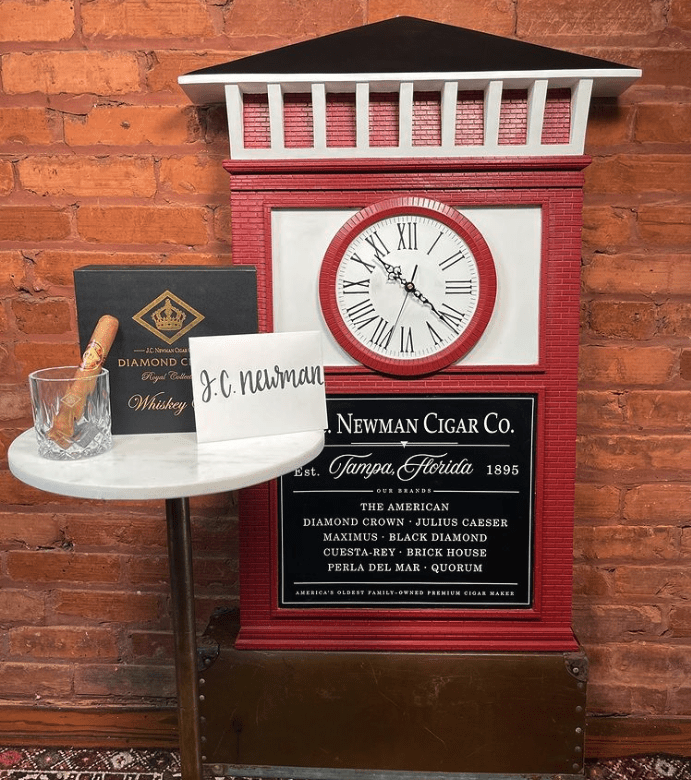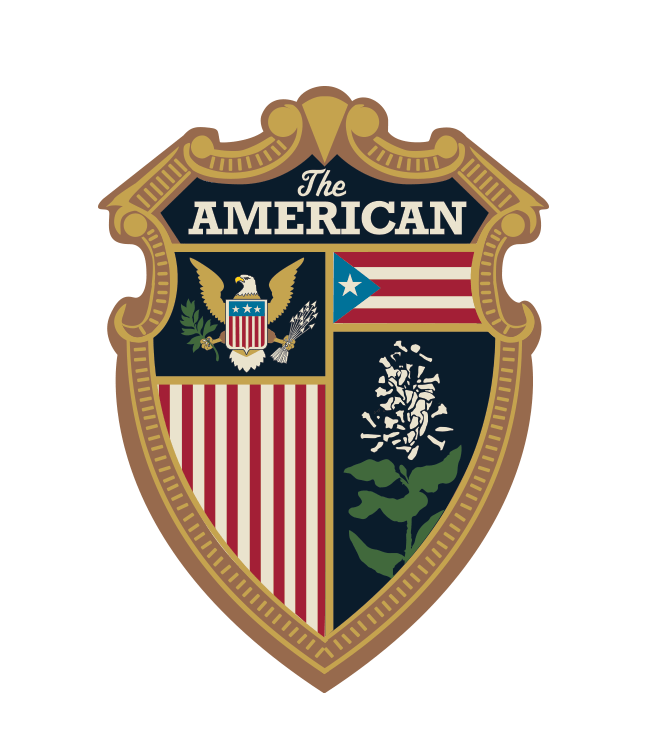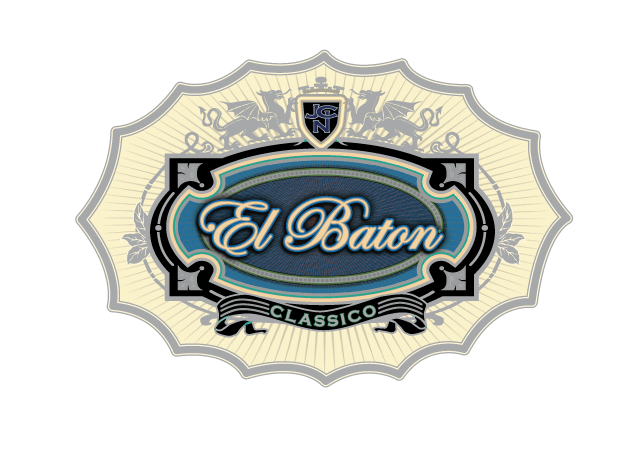J.C. Newman Cigar Co. Through The Years
129 Years of Family History

1888
Coming to America
The Newman family immigrated from Austria-Hungry to America in 1888. While his brothers and sisters became tailors, J.C. opted for a different route and became a cigar makers apprentice.
In 1895, J.C.’s mother Hannah solicited an order for 500 cigars from the family grocery store and loaned her son $50.00 to buy two bales of tobacco. The J.C. Newman Cigar Company was born.

1906
From Basement to Factory
Hannah Newman kicked her son and his five employees out of the basement of her home when she discovered that her canned fruits and vegetables began to taste like tobacco.
J.C. Newman relocated his factory to a storefront in downtown Cleveland which, by 1905, became the largest cigar factory in the city.

1916
New Ohio Factories
Because of a shortage of skilled workers in Cleveland, J.C. Newman could not roll enough cigars to meet the demand.
J.C. Newman built new factories in neighboring towns of Marion and Lorrain, Ohio. J.C. Newman was also one of the first cigar manufacturers to use cigar machines to increase efficiency.

1927
M. & N. Cigar Co.
A deflated economy caused the value of tobacco to plummet. Many cigar makers who borrowed money to buy tobacco that was now worth less than what they owed to the banks became insolvent.
J.C. Newman merged with the Mendelsohn Cigar Company, the other remaining cigar factory in Cleveland in 1927, to create “M. & N. Cigar Manufacturers, Inc.,” the name that remained until 1997 when it was changed back to the J.C. Newman Cigar Company.

1929
The Great Depression
All businesses struggled including those in the cigar industry.
J.C. Newman increased the efficiency of his factory by running two shifts that produced cigars that sold for two cents. Although J.C. made no money during this time period, he succeeded in keeping his cigar rollers employed and his business survived.

1937
The Cigar Oligarchy
In 1937, the largest cigar companies tried to run the smaller manufacturers, like J.C. Newman, out of business by using the tobacco quota system to prevent smaller manufacturers from being able to buy Connecticut Shade tobaccos.
J.C. Newman took the train to Washington to advocate on behalf of the smaller cigar companies. Unable to meet with President Roosevelt, he instead met with U.S. Secretary of Agriculture Henry A. Wallace whom J.C. Newman convinced to raise the cigar tobacco quota.

1943
Post-World War II
The U.S. government returned millions of cigars purchased from cigar companies during the war, including from J.C. Newman. On some days, J.C. Newman received more returned cigars than it sold.
J.C.’s son Stanford developed the Cameo cigar, a premium brand that became the top-selling nickel cigar in the Midwest.

1953
The Move to Cigar City, USA.
In the 1950s, the big cigar companies, who grew most of their own tobacco, offered farmers twice the market price for tobacco for a little bit of their need just to inflate its cost and price smaller manufactures out of business.
J.C. found a niche of the cigar business in which the major cigar companies were not competing: premium cigars. There was only one city making premium cigars: Tampa, FL. The family moved into the El Reloj Cigar Factory where they still make cigars today!

1961
The Cuban Embargo
In 1961, President John F. Kennedy imposed the Cuban Embargo, which prohibited cigar companies from importing Cuban tobacco. Without his primary source of tobacco, Stanford Newman had to find a way to remain in business.
Stanford discovered a new type of tobacco for his cigars, African Cameroon wrapper, and introduced it to the United States. This unique tobacco made Cuesta-Rey one of the top-selling premium cigars in the late 1960s and early 1970s.

1986
The Family Business
Very few family businesses survive beyond the first or second generation, especially when a business is steadily declining like the cigar industry was in the 1980s. When the third generation joined J.C. Newman in 1970s, the company was owned by twelve relatives.
For the family business to survive, the Newmans agreed that one side would have to buy out the other relatives. On Valentine’s Day 1986, Stanford Newman, who owned one-third of the business bought out nine relatives who collectively owned two-thirds of the company. To finance this deal, Stanford, Eric, and Bobby had to mortgage and leverage all of their assets.

1990
The Fuente Partnership
With cigar sales steadily declining, Stanford, Eric, and Bobby realized that one of their company’s greatest assets, its sales and distribution division, was operating inefficiently due to excess capacity.
In 1990, the Fuente and Newman families formed a new company, now known as the Arturo Fuente Cigar Company, to distribute Arturo Fuente cigars in the United States using J.C. Newman’s sales and distribution assets.

1995
Introduction of Diamond Crown
American consumers were transitioning from traditional machine-made premium cigars to imported, handmade cigars. Stanford, Eric and Bobby knew that to continue to succeed in the premium cigar business they would have to have their own imported, handmade cigars, but they did not own an imported cigar factory.
Longtime friend Carlos Fuente, Sr. called Stanford to ask if he would be interested in making cigars for him in Tampa so that he could focus on his Dominican cigar factory. Stanford agreed but asked Carlos if he would make cigars for the Newmans in the Dominican Republic. Carlos agreed and together they blended and launched a luxury cigar: Diamond Crown.

2001
Diamond Crown Lounges
In early 2000, smoking bans spread across the United States, making it increasingly difficult for cigar smokers to find places to enjoy their favorite cigars.
J.C. Newman created a national network of Diamond Crown Cigar Lounges in dozens of premium cigar retailers across the country to offer a first-class environment,

2003
J.C. Newman PENSA
When J.C. Newman introduced its Quorum brand in 2003, the cigars were made by an independent factory. As sales of Quorum grew, the Newmans found themselves in a highly vulnerable position because they were reliant on a
third-party to roll their cigars.
In order to control their own destiny and ensure the highest standards of quality, Eric and Bobby Newman built a large, modern cigar factory in Esteli, Nicaragua, known as J.C. Newman PENSA.

2017
The American
The American was the first cigar brand rolled in J.C. Newman’s historic El Reloj factory when it opened in 1910 in Ybor City, Florida. More than a century later, The American was been reintroduced by Fourth Generation owner Drew Newman, as a 100% American cigar. It Is once again hand rolled in El Reloj.
From the cigar molds to the bands to the hard wood in the cabinet boxes, The American is a 100% American cigar.

2020
Reinvigorating El Reloj
When it was built in 1910, El Reloj was considered to be the largest and finest cigar factory in the world. Of Tampa’s 150 cigar factories, El Reloj is the last one still operating.
J.C. Newman Cigar Co. recently restored the historic cigar factory to welcome the public. We offer tours of the factory and cigar manufacturing process and have a factory theater and store.

Now
Looking To The Future
We have recently relaunched El Baton and Black Diamond cigars and an introduction of Cuesta-Rey Cameroon 95 cigars.
J.C. Newman Cigar Co. is also expanding in Cigar City, Tampa, FL with the construction of a park, smoking lounge, and Inn (coming soon!)
WIN THIS EL RELOJ WALL CLOCK

In honor of another year in family business, we are giving away our El Reloj wall clock, and a Diamond Crown Whiskey Set. Fill out the form to enter. No purchase is necessary. Winners are selected at the end of May and notified via email!
Fill Out This Form to Be Entered to Win
QUICK LINKS
SIGN UP FOR OUR NEWSLETTER









